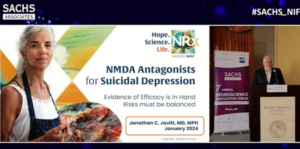By Lia Eustachewich, NY Post
The race is on to find a treatment that works to quash the coronavirus — as the deadly disease continues to spread across the globe.
Here’s a list of the most promising treatments and potential vaccines for SARS-CoV-2, the virus that causes COVID-19.
Remdesivir
The experimental antiviral drug, made by Gilead Sciences, was the first to get emergency-use authorization from the US Food and Drug Administration. It was initially developed to treat Hepatitis C and RSV, a virus that can cause potentially serious respiratory infections, and works by stopping viruses from replicating by inserting itself into infected genes.
Remdesivir was recently shown to have reduced the risk of death for severely ill coronavirus patients by 62 percent during a clinical study.
An earlier study also found that remdesivir helped coronavirus patients recover more quickly.
Dexamethasone
Several US hospitals began using the widely available steroid to treat COVID-19 patients in June after a preliminary study by British researchers found that the inexpensive drug lowered the risk of death by about a third in patients requiring mechanical breathing assistance or oxygen.
The anti-inflammatory is used to treat edema, tumors in the spine and brain and eye inflammation. It is also used as a treatment for certain types of autoimmune diseases and cancers including leukemia, lymphoma and multiple myeloma.
But dexamethasone may do more harm than good for patients with milder cases of coronavirus, however. The National Institutes of Health does not recommend using the drug on those who do not require supplemental oxygen or a ventilator.
RLF-100
Critically ill patients have also bounced back quicker thanks to RLF-100, or aviptadil, a synthetic form of a natural peptide that protects the lung. The treatment was just granted fast-track emergency use designation in the US by the FDA.
Interferon beta
An inhalable form of interferon beta, a protein that’s produced by the body battling a viral infection, helped reduced the odds of patients developing serious cases of coronavirus by 79 percent, according to a preliminary study of a Phase II clinical trial released last month. The treatment, developed by UK company Synairgen, was inhaled directly into the lungs.
The trial, however, was conducted only on a small set of patients.
Vaccines
More than 165 coronavirus vaccines are currently being developed — and 27 have reached human trials, according to the New York Times.
The Trump administration has been doling out serious amounts of funding for various potential vaccines that are being developed by firms including Moderna, Johnson & Johnson and AstraZeneca. The goal is to deliver 300 million doses of an effective coronavirus vaccine by January.
Moderna reached Phase III of its human trial after a study found that monkeys who were injected with its candidate — mRNA-1273 — built immunity against COVID-19. Primates that were given two doses of the vaccination developed high levels of antibodies and were able to fight off the virus.
A vaccine that’s being developed by Johnson & Johnson had similar results in monkeys.
Pfizer has also been working on four experimental vaccines with German-based BioNTech, including one that helped volunteers in phase I and II trials develop antibodies against the coronavirus.



